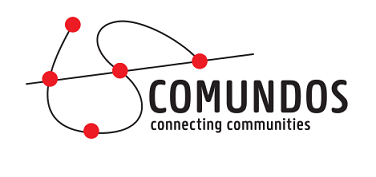What do the stories of Comundos represent ?
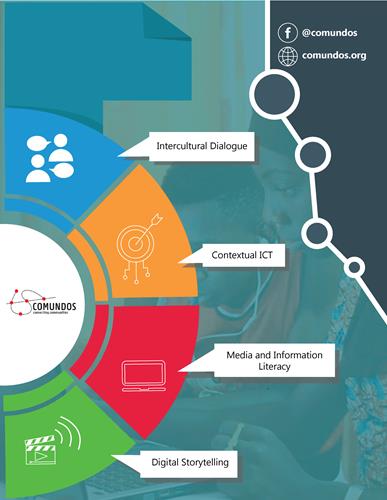 How to ensure an ethical and dignified life in a mediatised society? To what extent are we able to perceive the consequences of the lack of media literacy? How can we promote peaceful coexistence and intercultural dialogues ?
How to ensure an ethical and dignified life in a mediatised society? To what extent are we able to perceive the consequences of the lack of media literacy? How can we promote peaceful coexistence and intercultural dialogues ?
 How to ensure an ethical and dignified life in a mediatised society? To what extent are we able to perceive the consequences of the lack of media literacy? How can we promote peaceful coexistence and intercultural dialogues ?
How to ensure an ethical and dignified life in a mediatised society? To what extent are we able to perceive the consequences of the lack of media literacy? How can we promote peaceful coexistence and intercultural dialogues ?
What do the digital stories of Comundos represent?
Comundos: opening the way to media literacy, contextualized ICT
This learning process sparks the interest in media literacy
How Comundos started
Comundos vision: media education with transversal competencies
Comundos timeline
We asked some participants on how they would describe their experience with Comundos?
This is the reality in many countries where the population is poorly educated to critically process what is delivered by the media, and where the governments barely invest in educational policies, leading to inappropriate use of Information and Communication Technology (ICT), lower internet security and citizens empowerment.
This has been the challenge in the program of Comundos that awakens media literacy in Belgium, Benin, Brazil, Cameroon, Guatemala, Honduras, Mozambique, Nicaragua, the Philippines, Rwanda, Senegal and South Africa.
Since its inception five years ago, Comundos contributes to youth groups in rural and urban context. Up to now over 600 teachers and educators of NGO´s were trained in or out of school, creating digital stories related to their reality. They in turn are now putting media education into practice with their students and peers.
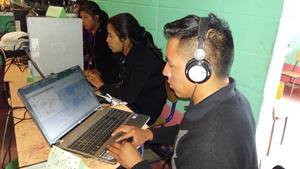 What do the digital stories of Comundos represent?
What do the digital stories of Comundos represent?
Digital stories are a tool that young people learn to use which helps them to understand and create stories about their life and reflect on solutions regarding their own challenges.
Producing these digital stories about their communities and the skills acquired within the workshops are closely linked to the Sustainable Development Goals, established by the United Nations (SDGs) for 2030.
The methodology acts within a process of social empowerment, where each citizen is a co-creator of information and knowledge, and has a message to deliver.
The technologies (laptop, open software for sound-video-image editing, cellphone) are accessible within the communities of these young people, overcoming the lack of access to the means of production and distribution of videos and other media.
Through media education community life, participation in economy, and acces to public services are potentialised and hence the need to ensure that the media, the internet and other information providers are present everywhere.
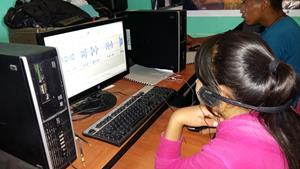 Comundos: opening the way to media literacy, contextualised ICT
Comundos: opening the way to media literacy, contextualised ICT
With the joint efforts of various volunteers and supporters, Comundos has multiplied the creation of digital stories consisting of short films with real life characters and stories, produced with simple equipment in a short period of time. Whoever wants to get to know them can access both our site and also our social networks.
Comundos focuses on youth. However the technique of Digital Storytelling can be used by people of different ages, levels of schooling and social conditions. It does not require much former knowledge or technical ability.
The elaboration is based on digitalised drawings, video clips, texts, photos, narratives etc. But most important is to tell an inspiring story using videos to share with others. This exercise is exciting for youth who are more connected with technology and are motivated to take on the challenge of the creative process.
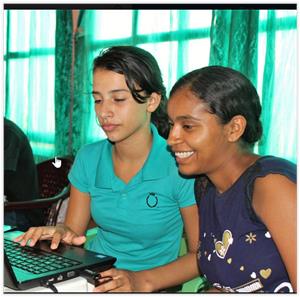 This learning process sparks the interest in media literacy
This learning process sparks the interest in media literacy
Media literacy is the understanding of our mediatised society, how media was created and it paints reality and the understanding on how to use peripherals (digital camera´s, digital disks, printers, etc.) and various softwares.
During the four-day training Comundos provides guidance on media environments such as to find, organise and process information, on creating content and estimulating participation in the media for better results on the SDGs, in order to achieve a sustainable planet.
Telling digital stories, bringing visibility to challenges and their solutions, and social movements, in a person's and/or community's life are novelties that have awoken the interest of people working in a pedagogical context. In practice, Comundos contributes to media literacy as a tool for development, and also as a way of strengthening the democratic use of the media.
In 2020, we are finishing the final four-year pilot phase in Cameroon. Media coaches of eleven schools (one mediacoach for each school) acquired the competences of contextualized ICT to train and support their Cameroonian colleagues and students from various regions and environments like semi-arid regions and tropical forests. Since 2018 Comundos works with a local coordinator to facilitate the program.
It started in 2014 by the efforts of Belgians Hans Vanderspikken, Gerard Verhelst, Jurgen D´Ours and Bart Vetsuypens. They wanted to take on the challenge to facilitate the learning of media literacy in developing countries.
Inspired by a participative working methodology Comundos built the program with principals and pedagogic coordinators of the Family Farm Schools in Brazil, Cameroon, Guatemala, and Honduras.
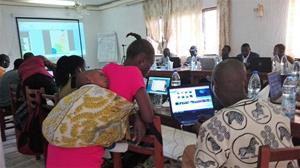 Five years later, Comundos receives the support of an international group of volunteers such as webmasters, translators, project managers, journalists and pedagogical consultants from Belgium, Brazil, Germany, Spain, Nigeria, Philippines ... and started working with local representatives in Benin, Brazil, Cameroon, Guatemala, Honduras, Mozambique, Philippines and Rwanda and has aroused interest in Ecuador and Bolivia.
Five years later, Comundos receives the support of an international group of volunteers such as webmasters, translators, project managers, journalists and pedagogical consultants from Belgium, Brazil, Germany, Spain, Nigeria, Philippines ... and started working with local representatives in Benin, Brazil, Cameroon, Guatemala, Honduras, Mozambique, Philippines and Rwanda and has aroused interest in Ecuador and Bolivia.
Nowadays, Comundos connects cities and communities in Belgium (Sint Niklaas, Merelbeke), as well as in Tambacounda, Senegal and in Toucountouna, Benin through digital stories focused on the Sustainable Development Goals from the UN, to learn from each others´experiences in education, health, COVID 19, safety, environment, gender issues, local cultures, public policies. These experiences are turned into digital stories.
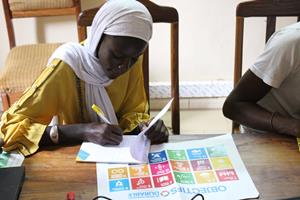
The audiovisual production of the participants during the workshops can be inserted in an educational process as a strategic tool to reflect on local contexts and solutions. At the same time the partcipants practice communication to become media literate. We have intergrated our learning tools in the plannings of non-governmental organisations and schools in various countries.
Comundos vision: media literacy with a focus on transversal competencies
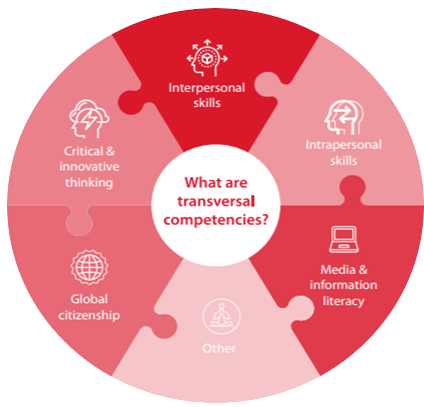 Comundos raises awareness about the role of media literacy and digital education in the schools´curriculum and social organisations using communication as a pedagogical tool to improve writing skills and audiovisual techniques, for self-expression and to learn how to create an inspiring story on their local context.
Comundos raises awareness about the role of media literacy and digital education in the schools´curriculum and social organisations using communication as a pedagogical tool to improve writing skills and audiovisual techniques, for self-expression and to learn how to create an inspiring story on their local context.
Comundos wants to differentiate itself from a purely technical training in computer skills by focusing on putting the technology into practice with contents that stimulate a critical vision of the participants. We call it contextualized ICT.
The intercultural content revealed in the workshops of digital storytelling are complementary to the pedagogy of the school and organisations, responding to the interest of youth to learn other languages and promote dialogues among different cultures.
Many stories of the students in Belgium, Guatemala, Honduras, Mozambique, the Philippines and Brazil are addressing challenges and finding solutions to mitigate global warming.
In their digital stories they often blame humaniity: deforestation of tropical forests, burning of fossil fuels, or the creation of huge herds of cattle and hyper consumerism.
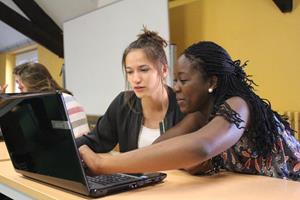 The major challenge is to enhance dialogue among teachers, educators and students from all cultures to generate new attitudes, skills and knowledge on media literacy that generates an intercultural dialogue about the sustainable development goals ( SDG´s) which touches transversal competencies.
The major challenge is to enhance dialogue among teachers, educators and students from all cultures to generate new attitudes, skills and knowledge on media literacy that generates an intercultural dialogue about the sustainable development goals ( SDG´s) which touches transversal competencies.
UNESCO itself has intensified its work in this field, through its network for global development of media literacy, information ( MIL) and intercultural dialogue.
Comundos facilitates the students´ assimilation of new life skills. We also help discover their talents, learn them how to use media literacy in a simple manner to enhance their writing skills by telling good stories about their daily life, and by looking at the media and the world with a critical eye.
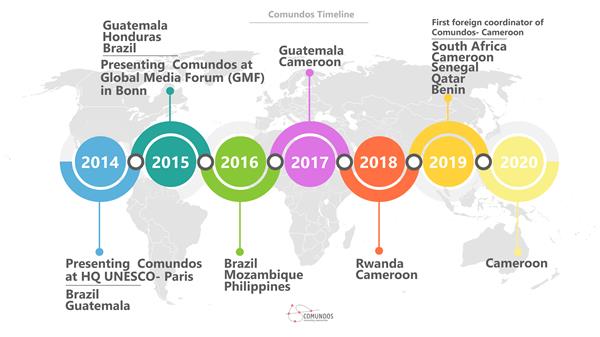
We asked some participants on how they would describe their experience with Comundos?
Anselmo Pereira, teacher from Goiás, Brazil
It was a transformative experience. Through Comundos we were able to discover and develop our potential in the use of multimedia and we learned to use them to our advantage.
Ana Naara da Silva e Silva, educator in communication, Valente, Brazil
It was a rich learning experience that gave us a new alternative for communicating, connecting with inspiring experiences and being able to showcase our experiences.
Rogerio Mario Manuel Armando, teacher from Mozambiqe
It was one of the best experiences I ever had, reproducing the experiences of young people living their daily lives in the form of videos and images.
Leonildo de Moura Souza, teacher, Gloria de Goita, Brazil
It was amazing. A really great experience, and I was able to learn video production techniques and ideas. Very cool.
Gerson Flavio, social communicator
Experience that entices us to reflect on reality from a critical point of view. Thank you for having made possible this experience that anyone can start to become a "filmmaker", for demystifying audio-visual production and showing that with creativity and resources that are within our reach it is possible to communicate very efficiently.
Bruna Richter – student, Brazil
I had contact with Comundos 4 years ago in an experience in Espírito Santo, where we made Digital Stories and told about the community in which I live. The experience helped spread the word about family agriculture in the region. I am grateful for having had the experience with Comundos.
María del Rosario Castillo de Galdámez, teacher in Honduras.
It's very interesting and important to make the work being done known, or rather, the dreams and activities of young students. To get to know what is being done in other countries. A big thank you for sharing the knowledge and facilitating communication between countries.
Luis Arturo Roque Portillo, teacher in Guatemala.
Very enriching, it's one of my best and most enjoyable experiences. I discovered that I have computer skills. I learned to share experiences through a story. And how to write a script, analyze it and correct it so that anyone who sees or hears it understands it.
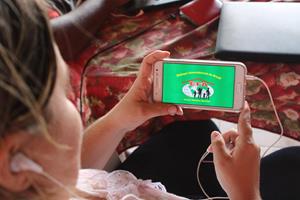
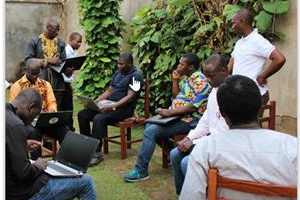
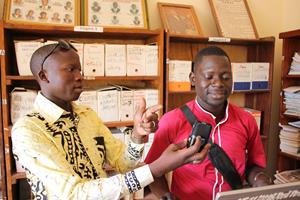
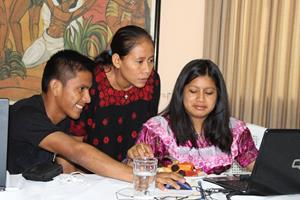
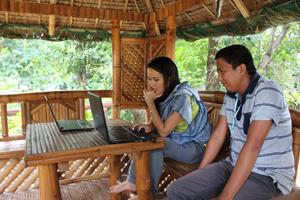
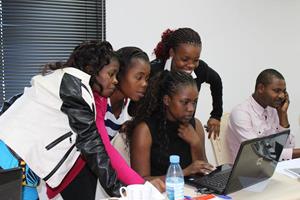
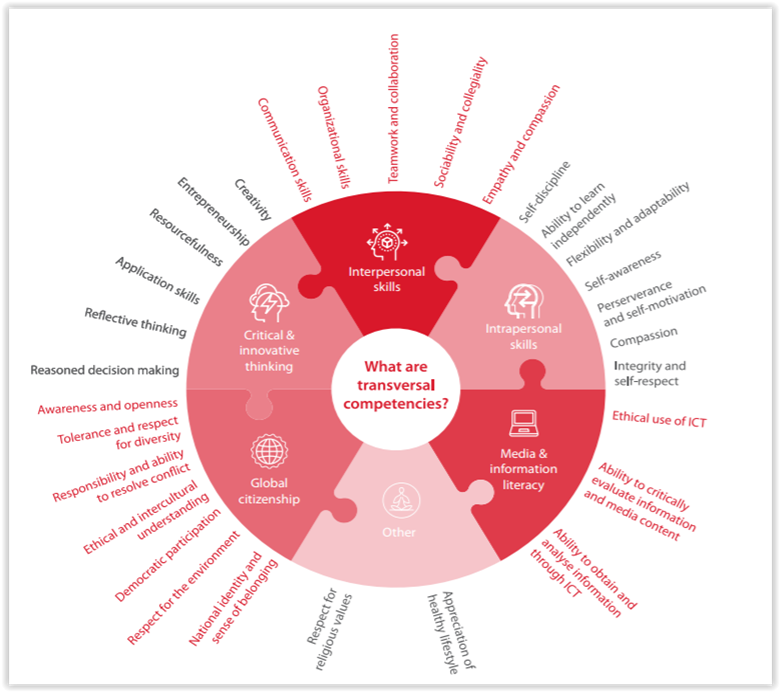
A gift for Comundos
Over the years, Comundos has helped remote communities around the world by teaching critical thinking, media literacy and the use of communication technology.
To do this effectively, we need your support for computers, translations, courses and social media management.
Thank you .
BE11 1030 2973 8248
